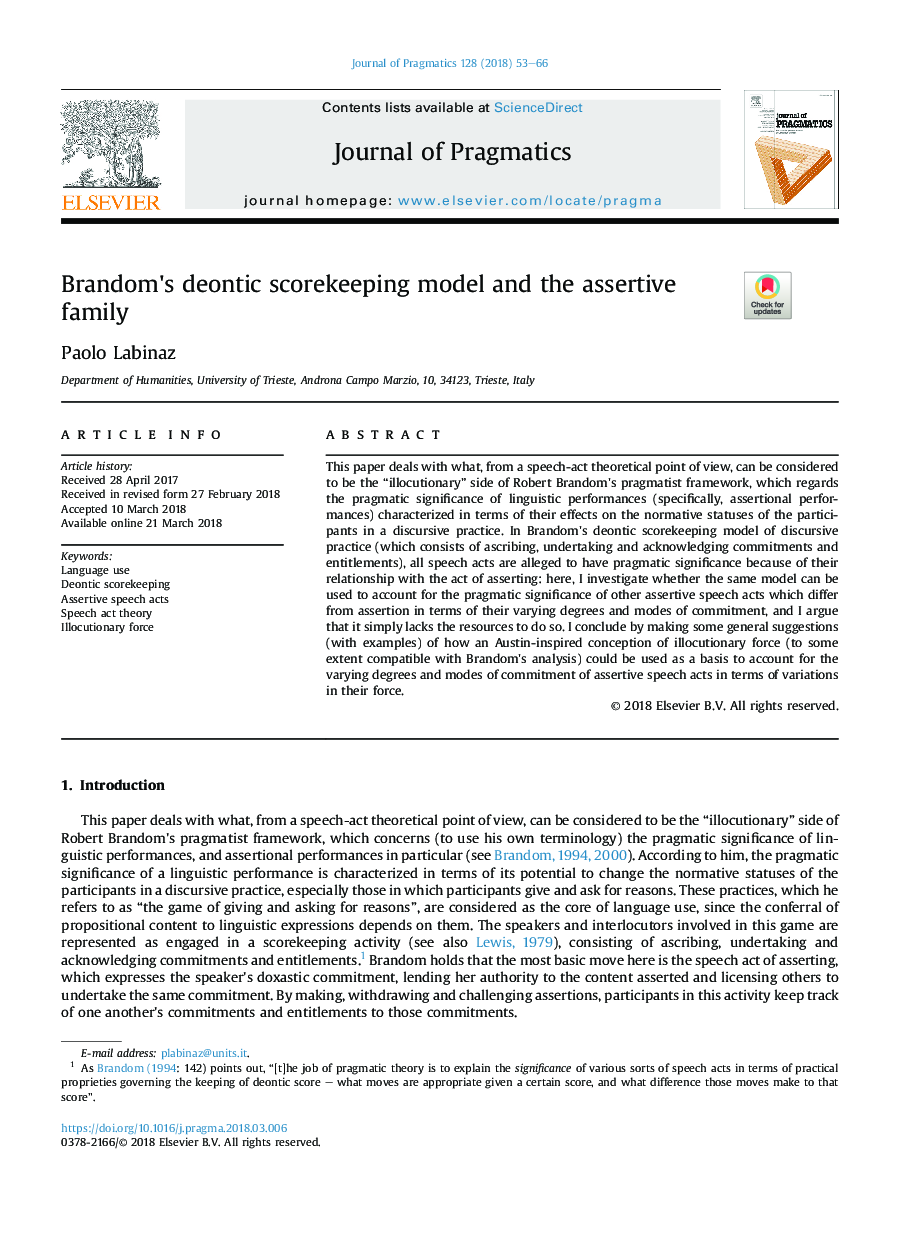| Article ID | Journal | Published Year | Pages | File Type |
|---|---|---|---|---|
| 7297388 | Journal of Pragmatics | 2018 | 14 Pages |
Abstract
This paper deals with what, from a speech-act theoretical point of view, can be considered to be the “illocutionary” side of Robert Brandom's pragmatist framework, which regards the pragmatic significance of linguistic performances (specifically, assertional performances) characterized in terms of their effects on the normative statuses of the participants in a discursive practice. In Brandom's deontic scorekeeping model of discursive practice (which consists of ascribing, undertaking and acknowledging commitments and entitlements), all speech acts are alleged to have pragmatic significance because of their relationship with the act of asserting: here, I investigate whether the same model can be used to account for the pragmatic significance of other assertive speech acts which differ from assertion in terms of their varying degrees and modes of commitment, and I argue that it simply lacks the resources to do so. I conclude by making some general suggestions (with examples) of how an Austin-inspired conception of illocutionary force (to some extent compatible with Brandom's analysis) could be used as a basis to account for the varying degrees and modes of commitment of assertive speech acts in terms of variations in their force.
Related Topics
Social Sciences and Humanities
Arts and Humanities
Language and Linguistics
Authors
Paolo Labinaz,
